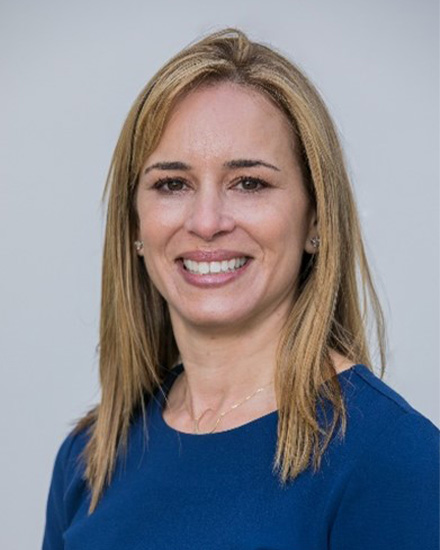University of Miami (UM)
Visit Dr. Kobetz’s UM Faculty Page | Visit Dr. Kobetz’s Lab Website

Erin Kobetz, PhD, MPH serves in multiple roles at the University of Miami. As the Vice Provost for Research and Scholarship, she works with University affiliates, community stakeholders, and industry partners to advance the University’s research enterprise, leading to scientific breakthroughs and research innovation that can effectively address societal challenges. As the Associate Director for Population Science and Cancer Disparity at the SCCC (Sylvester) and Chief of Population Health and Cancer Disparities for the UHealth Oncology Service Line, she facilitates the interdisciplinary integration of population science within the basic, translational, and clinical research conducted across the University, as well as Sylvester’s three research programs. She also oversees center-wide community outreach and engagement efforts, including working with Sylvester leadership to identify research priorities and setting the focus and direction of Sylvester’s Office of Outreach and Engagement. She leads programs that deliver Sylvester’s resources to communities across South Florida, including the Game Changer mobile clinics, which bring cancer screenings, health information, and research opportunities to undeserved communities and individuals to mitigate barriers to cancer screening. As part of her community – based research program, Dr. Kobetz has led several successful initiatives to reduce the disproportionate impact of gynecological cancers on minority and marginalized women, particularly the excess burden of cervical cancer within South Florida’s Haitian community. Most notably, she and her team were among the first to translate HPV self-sampling from a clinical to a community setting, eliminating multilevel barriers within communities disenfranchised from healthcare opportunity, to increase participation in cervical cancer screening. Dr. Kobetz will lead the integration of population-level data in SCAN360 with the PAC3R infrastructure to link data across molecular-, cell-, clinical-, and population-levels, enabling new directions in health disparities research and mitigation in Florida.